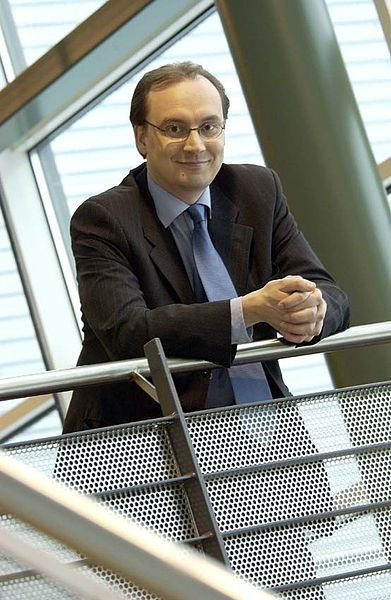In late March, the Hungarian parliament ratified Finland’s NATO membership, which led to joining it as a member a week later. At the time, some Hungarian officials “spent months telling counterparts that they had no objections, and their parliament was simply busy with other business,” as reported by Politico. “Budapest changed its narrative… with Prime Minister Viktor Orbán… arguing the point that some of his legislators had qualms regarding criticism of the state of Hungarian democracy.” While taking longer than perhaps hoped, the Hungarian parliament ultimately voted to ratify it by a margin of 182 to 6 on March 27.
Author: Jared Feldschreiber
One of Finland’s most impressive diplomats in the last two decades has been Jari Vilén, an accomplished envoy who served in the Finnish Parliament and represented the National Coalition Party between 1999 to 2007. In August of that same year, Mr. Vilén was tapped as Finland’s Ambassador in Budapest, and by mid-February 2012, he was assumed as Ambassador to Warsaw, which he began later that fall. In 2014, Mr. Vilén was also appointed EU ambassador to the Council of Europe.
During a wide-ranging discussion as a guest on CEA Talk with István Teplán, Amb. Vilén addressed a litany of geopolitical topics in a most volatile time for the continent. In introducing his friend and colleague, Mr. Teplán reminded listeners that Jari Vilén currently has been serving as Ambassador to the Barents and the Northern Dimension in the Ministry of Foreign Affairs. Amb. Vilén “is very interested in Central Europe, and a great friend of Hungary,” observed Mr. Teplán, saying that the respected envoy has helped with “the democratization process of [Central European] countries for many years.”
“One of the greatest moments in my life, diplomatically and politically, was on the 16th of April 2003, when I had the privilege and pleasure to sign on behalf of the Finnish government… the enlargement treaty, which included Hungarian membership into the European Union,” reminisced Amb. Vilén. “I still remember that day very vividly. I think that was the beginning of my love story [for] Hungary, but also [with all] Central European countries.”

Finland’s pragmatism led it to vie for NATO membership so early after the Russian invasion of Ukraine since Moscow’s flagrant aggression and invasion of Ukraine broke all norms. This gave Finland little choice but to react and change the geopolitical paradigm, argued Amb. Vilén. “We were able to survive [the Second World War] thanks to our defense forces. I can fairly say that for the first time in Finnish political history, it was the Finnish decision that decided it. [Russia’s invasion of Ukraine on Feb. 24, 2022] was unacceptable… All the red lines, which existed, had been crossed.” Amb. Vilén also revealed that within 72 hours of the Russian invasion, “the Finnish citizens decided that the best way to secure our borders [was] to join… NATO… This is the first time [that] the people demanded change… This time, it was [done] not by the political leadership, but by the people’s will — which was then followed by [actions of] the parliament, and its government members.”
Amb. Vilén reiterated the words of outgoing Prime Minister Sanna Marin who said from the outset that “there would be peace if Russia would withdraw their troops and stop the aggression against Ukraine.” Amb Vilén stressed that “this war started because of Russian aggression. [It] started because Russia decided to try to change the borders and limit the freedoms of its next-door neighbor, and at the same time, also advocated it would like to limit the freedom of other member states close to Russia.” Amb. Vilén added that since 1944, Finland always sought to “build its defense capacity to resist Russian aggression. Everything we have done has been built on this assumption – that one day, Russia may be the aggressor.” Its membership in NATO can thus be best seen as an insurance policy, which, if necessary, could invoke Article 5 of collective defense if any member state is attacked.
Amb. Vilén acknowledged that even as an envoy whose career has been devoted to compromise between nations, “now… I do not see the momentum where diplomacy could come and bring peace between Ukraine and Russia. It is fighting that is ongoing. [However, one day] there will be a negotiated solution. All wars have ended with some kind of treaty, and I sincerely hope it will be sooner than later because of all the suffering,” he said. “Russia has not made any gesture [to] withdraw its ambitions of overcoming the Ukrainian government. Ukraine has had no alternative but to try to defend itself… We don’t have any other choice but to support Ukraine in any way we can.” Amb. Vilén also surmised that Russia has already lost the war since it is now seen as a pariah in the world. “It has lost the confidence of its neighbors, and whatever relations it had before.”
Mr. Teplán posed to Amb. Vilén whether Hungary will soon “lose a friend” in Finland as a result “of the clear insolence and mockery that the Hungarian government performed in delaying the agreeing to ratify the joining [of Finland to NATO].” Teplán lamented the “unnecessary attacks on Finland by the [Hungarian] media and remarks by the minister of state [Tamás Menczer and others] who said that ‘the Finns must learn decency and honesty from the Hungarians.”‘
Teplán asked whether these actions could be “repairable.”
“I believe there is a special relationship between Finland and Hungary, and I think there is a profound friendship between our two countries,” asserted Amb. Vilén. “It is also fair to say that Finns [were] also confused. If you talk to the people on the street, they’ll ask, ‘Why didn’t Hungary ratify the treaty in a similar manner and speed as [like] other member states?’ [The ratification process] was still the fastest in NATO’s history. The good part is that we did not feel threatened during the ratification process… We’re very confident with our security. We just wanted to have this additional security.”
The ratification delay can be seen as a “learning process for NATO. There are other elements, which come to [the forefront],” continued Amb. Vilén. “For Hungary, it was [an] internal [matter]. Let’s say [a result of] ‘strained relations’ with the EU… [These problems were] in the past, and we’re looking from NATO what membership means, and for the best possible partnerships… in the future.”
Amb. Vilén stressed that NATO member states should focus more on Arctic Defense, for instance, where Russia also has demonstrated its military might. “We [Finns] are very pragmatic people,” emphasized Amb Vilén. “The good thing is that we are very well informed… We understand internal politics but also foreign politics. The issues can be put in greater perspective, and we are willing to look forward to the new kind of partnership. We hope that the Hungarians will ratify the Swedish membership as soon as possible because NATO needs Sweden as our partner.”
Amb. Vilén concluded that he “would argue that the European Union is more unified than ever before. Who would have been able to imagine – at least President Putin did not imagine this — that the European Union could stay unified, including the Hungarian participation with the ten-sanction package against Russia.” Amb. Vilén also pointed to unified support for weapons packages to Ukraine. “Europe is on the move; it’s on the move because of the war, and it’s on the move because of the changing economic situation… and the EU is [and will] pull through.”
Here, Amb. Vilén likened Hungary to Finland. “It is in the interest of a small member state [like Hungary or Finland] to participate, and it is in our interest to form a strong commission to balance [with] the bigger member states.”
Cover Photo Credit: WikiCommons

Jared Feldschreiber is a freelance reporter and contributor to Central European Affairs Magazine. He is based in Warsaw, Poland, and often chronicles literary figures, filmmakers, and dissidents in nascent democracies. Reckless Abandon, his novella, is available worldwide.
Twitter: @jmfeldschreiber
Photo credit: Ilan Sherman



